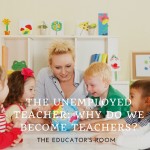[fusion_builder_container hundred_percent=”yes” overflow=”visible”][fusion_builder_row][fusion_builder_column type=”1_1″ background_position=”left top” background_color=”” border_size=”” border_color=”” border_style=”solid” spacing=”yes” background_image=”” background_repeat=”no-repeat” padding=”” margin_top=”0px” margin_bottom=”0px” class=”” id=”” animation_type=”” animation_speed=”0.3″ animation_direction=”left” hide_on_mobile=”no” center_content=”no” min_height=”none”]
Everyone knows that magic is an illusion.
And yet, from time to time, I am quite certain that it is magic—not chance or merely good fortune—making an appearance in my classroom.
Classroom magic is no illusion. It manifests itself in the form of a student who wants more than a grade, a student who understands that education is more than job training or transcript manufacturing. Education is about the unfinished business of life. It is about uncovering in books and lessons and discussions a richer life of possibilities heretofore unconsidered by the student.
Most students don’t understand this; but those who awaken to education’s ennobling possibilities surely feel as though they have discovered magic for the very first time.
I will always remember Brian because he felt the magic. Every teacher, if he/she is lucky, has a Brian or two (or three) in the course of a teaching career.
Brian died suddenly last summer of unknown causes; at least they were unknown to me. I have tried to learn the “proper” reaction to such a heart-breaking reality. I found out the way so many people learn of difficult truths nowadays: on Facebook. I had seen Brian a number of times since graduating from high school in 2010. He liked to stop by my room once or twice a year during my lunch break. He would always bring me a low-cal sandwich from Chick-fil-A and we would talk about everything from his successful weight loss to the state of American politics. As he got older, of course, the visits became a little less frequent.
Facebook is filled with so much inane minutiae. Granted, that is kind of the point of Facebook. However, discovering the death of a student in such a forum seemed to be a cruelty reserved for the modern age—death should be announced in obituaries or revealed by a somber doctor exiting an operating room. It should not mingle with the posting of droll YouTube clips and light commentary about the latest football game on TV.
My credentialing classes fifteen years ago certainly didn’t address the issue of losing one’s students. I have done some reading and research on the subject and my findings are scarce, at best. And I think I know why: the proper manner of handling the loss of a student eludes us all. There are a handful of teacher-student couplings scattered throughout the canonical West that I have looked to for guidance: Alcibiades and Socrates, La Boétie and Montaigne, Allan Bloom and Leo Strauss. Yet in each case, it was the student, not the teacher, who suffered the loss.
My colleagues who feel the same tug of sadness frequently use the word “unnatural” to describe the loss they have experienced. It reminds them of the death of a child. There is a natural order to things in the biological world and that order—right or wrong—spills over into the classroom. No, it is not natural for teachers to attend the funerals of their students. But this sadness has a didactic and affirming element to it, for it reminds us of something we frequently forget in the context of our daily toils.
What I have learned from my heartbreak is that the death of former students should remind us about the humanity of our profession. For all the talk of “norms,” “common” practices, and “standardized” goals, there is nothing normal, common or standard in trying to make a difference in the lives of those we teach. We do not teach for an esoteric ideal nor do we teach for a test score—we teach for the most hopeful of reasons: to make a difference in another human life. We want to witness the trajectory of our students’ lives. We want to see it arch towards their dreams. We want to live long enough to experience its zenith and delight in the knowledge that we had a role to play in such grandeur.
Students sometimes forget that we teachers do not having paintings, clients, or patients as yardsticks for our successes and failures. We do not make great sums of money or win important prizes. What we do have is the dreams of our students. And what we want is to be more than practitioners of naked information—we want to be avatars of the Socratic spirit. We want to be artists of human transformation. We want student dreams to morph into their life’s reality.
And so I return to my dear, departed student. Brian is dead. So, too, are the dreams for his life. He will never see another sunset. He will never be a husband, a father or a physical therapist. If I close my eyes I can still see him sitting in my first period AP Government class, slightly slouched, with big bright eyes waiting for the next lesson to begin.
What would-have-been will haunt me forever. There is a large plaque on a wall on my high school campus that bears the names of every graduating class. Every time I pass it I stop and look at Brian’s name. Sometimes I run my fingers over the crevices of his engraved name.
I don’t know why I do this. But I know it makes me feel better–for it reminds me that once, many years ago, I saw magic creep across his loving face. And that magic took place in a classroom.[/fusion_builder_column][/fusion_builder_row][/fusion_builder_container]



